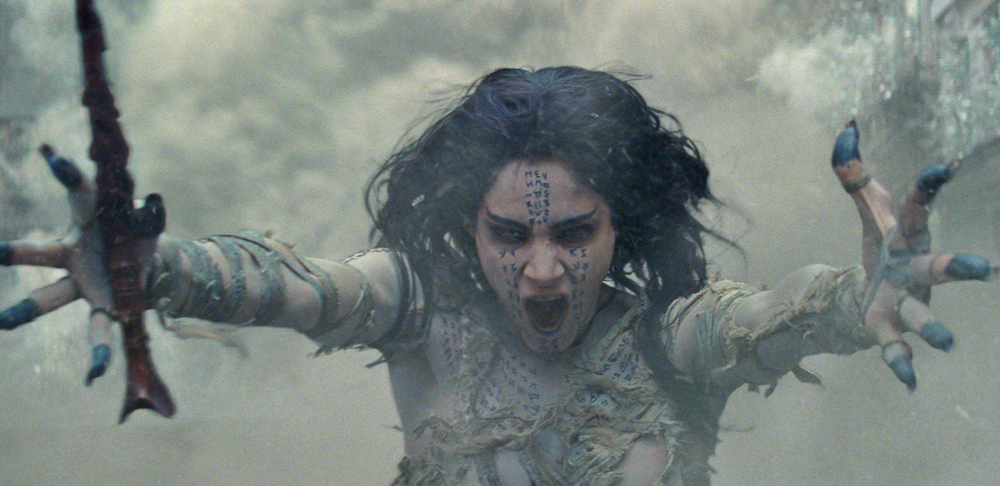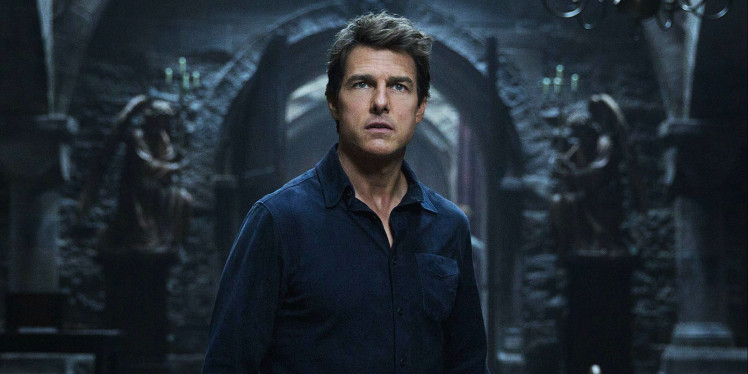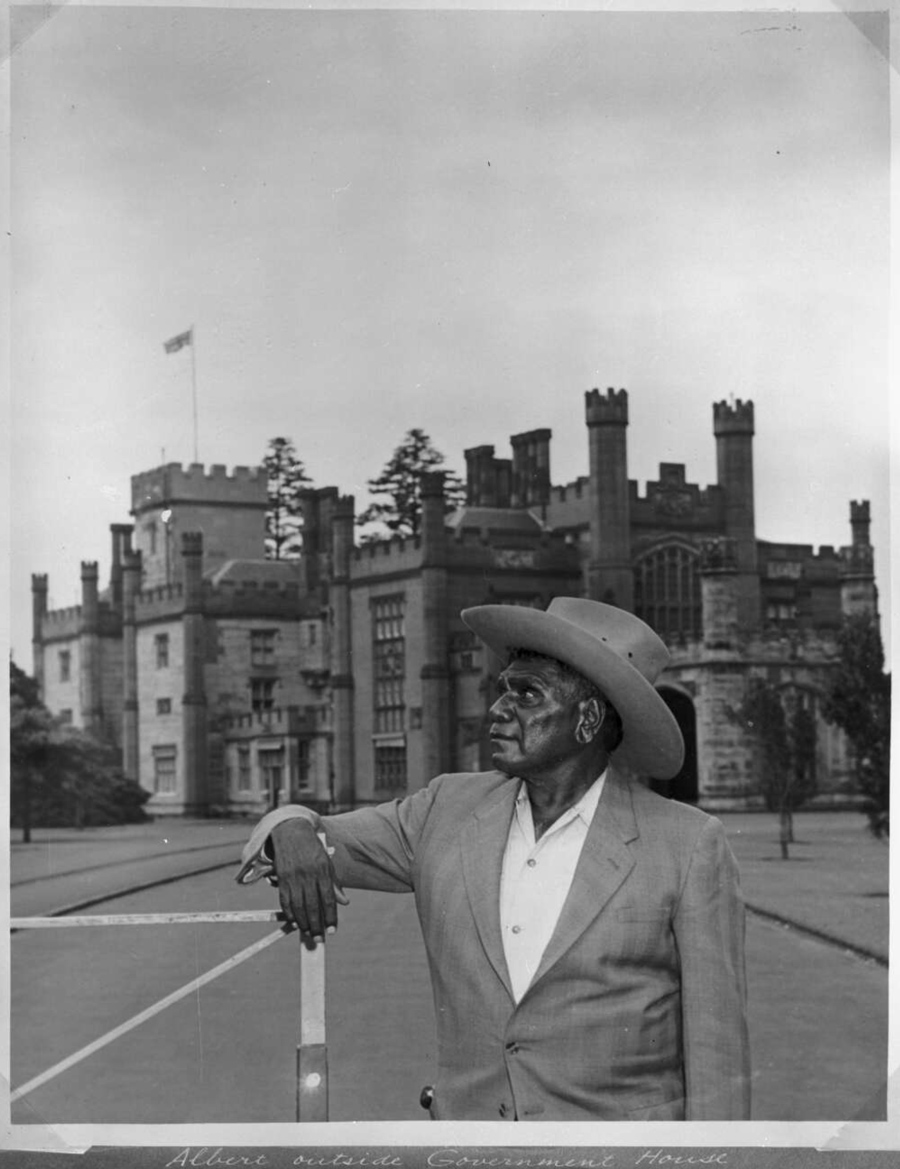“What about me?” Tom Cruise’s character Nick Morton wisecracks as he stands dangerously near an undead ancient Egyptian princess called Ahmanet (Sofia Boutella) who is unleashing hell on modern London in The Mummy. But there’s never any danger in this film that Cruise will miss out on attention.
The reason Ahmanet is free is, of course, Morton’s fault. He releases the sorceress from her crypt, an Egyptian equivalent of Alcatraz, in the hope there will be loot to sell on the black market. Morton pays for his mistake – which is nothing compared to the civilian death count – with a curse that has him pursued by Ahmanet, “the mummy”, who wants to use his body to resurrect a demonic force in human form.
Effectively, The Mummy takes a powerful female sorceress and reduces her to obsessing over Tom Cruise like she has a crush. For all the monstrous spectacle, it’s a film centered on the selfish Morton, not so much a character, but a riff on Cruise’s allure as a movie star which feels deeply out of step in 2017 – this film approaches Cruise like it’s 1996.
He works through a series of bland action sequences orchestrated by director, Alex Kurtzman, shaking off Sofia Boutella’s Ahmanet like he’s ignoring advances in a romantic comedy. At times it feels like How to Lose a Mummy in 10 Days. Morton even tells her: “it’s not you, it’s me!” Oddly, the villain, with all her evil actions, becomes the most sympathetic character compared to the egomania going on around her.
Director Alex Kurtzman never lets The Mummy settle into a groove and it’s constantly suffering from an identity crisis. It swerves wildly between explosive action, monster movie beats, cheap jump scares and large-scale destruction seen in any number of blockbusters; poor London. As the Mummy and her army of the undead limp through the fog of a graveyard like leftovers from a Michael Jackson video, it becomes clear how confused Kurtzman is with the iconography; he has every other monster movie element on his mind but the one that wears bandages.

Sofia Boutella plays Ahmanet. Image credit: Universal Pictures
Even the lead has to encompass everything: Cruise’s Nick Morton is the hero, but also a thief (with a heart of gold) and a scoundrel. And The Mummy is obsessed with Cruise to the point where the whole film revolves around him regardless of the character’s flaws. A bit of the old fashioned Cruise charisma seems to be the answer to smoothing out the film’s edges but it’s a performance so lacklustre it only makes the flaws stick out more. There’s even a nude scene with Cruise that’s shot with the mentality that teenagers are still hanging posters of him in their bedrooms. It’s odd seeing Cruise trying to still box himself in this way when he has proved on multiple occasions there’s an actor in there, somewhere, underneath the hair, teeth and all the damn running.
Further entangling The Mummy is how it positions itself as the beginning of Universal’s ‘dark universe’, part of a group of shared films (like the Marvel movies) that revive classic movie monsters and, presumably, have them all living in a share house situation. Weaving them together is Russell Crowe’s Dr. Henry Jekyll, who runs a secret organisation, Prodigium, which has a Latin meaning – and you bet they explain what it means in a longwinded scene.
This seems to be the lone purpose of Prodigium: to explain the plot of the film and excuse all the future films that will come. Universal has a rich history with its monster movies, beginning in 1923 with The Hunchback of Notre Dame and followed in successive decades by Dracula, Frankenstein, The Mummy (1932), The Invisible Man, Bride of Frankenstein, The Wolf Man and Creature from the Black Lagoon. As the blockbuster landscape now skews toward manufacturing a series of films that occupy a ‘shared universe’, every studio is scrambling to have their own, and Universal have dusted off their monsters and handed them an energy drink.
But why is The Mummy (2017 version) the first out of the sarcophagus? Universal last had a hit with The Mummy in 1999 (box office: $415 million worldwide) starring Brendan Fraser and Rachel Weisz. The 1999 film worked as an enjoyable and witty adventure film throwback reminiscent of Raiders of the Lost Ark. The Mummy (‘99) spawned its own sequels, of course, but they faded in charm and energy. If only Kurtzman paid attention to content and style of the original rather than its box office haul.
Still, Universal is betting big on this new and monstrous ‘dark universe’ and has already hired actors to play the Invisible Man (Johnny Depp) and Frankenstein (Javier Bardem). Unfortunately, The Mummy signals an awful mistake: promising a grand franchise without ensuring the first steps into a new filmic world are sturdy. Building a whole ‘dark universe’ of entertainment on The Mummy is like building a house near a sinkhole.





